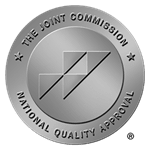Habits: Building Blocks of Positive Change
Thoughts to Emotions to Attitudes to…
Habits start off innocently enough. Maybe a drink to calm rattled nerves or forgetting in order to blur out a traumatic past. A whole pizza when work was a nightmare. Exercise when stress rears its head. The way you drive to work. A normal day. Call them patterns. Automatic responses or triggered actions. They grow into hard patterns or ruts. It’s not easy to break a pattern. But what were they before they were habits? They likely begin as thoughts. These thoughts trigger emotions. Emotions stack up to build attitudes. Attitudes toward the world, people, yourself, etc. Attitudes are like temporary personalities. They are often situational, changing and varying across time. Attitudes become habits. And habits can be very, very dangerous or extremely good for you.
Replacing the Bad with Good
This week we will focus on how habits are formed. We will also study ways we can break bad habits and replace them with good ones. Often, people identify habits as bad and cease to engage in them. But they fail to replace them with something new. This often results in falling back into the same routines. Ceasing a habit and not replacing it leaves a void in us that is hard to fill. We will look at new scientific breakthroughs that can help guide us in forming new habits from the ashes of our old ones. One of psychotherapy’s chief aims is to help people alter the way they perceive things so that they may augment their behaviors and benefit from this change.
Time, Patience, and Practice
Some may even dare to suggest that patterns and habits may be what drives addiction and many mental disorders. For example, a small habit that may harm us may be to avoid conflict. Maybe standing up to tyranny makes you scared so you developed a response where ybou shrink and disappear when faced with conflict. Over time, this can manifest as depression and feelings of worthlessness or extreme rage. What would happen if you broke this pattern and stood your ground firm when pressured into conflict? What if you stood up to authority or oppression? It would affect your mental health in a positive way, I would wager. You certainly would not feel depressed as a result of rising to a conflict and meeting a challenge head-on. But learning this new habit takes time, patience and practice. It is a skill that is cultivated via repetition.
It Takes a Village…
This week Barn Life Recovery is helping our students to identify bad habits, as defined by them. We will aid them in rooting it out and replacing it with a self-defined good habit. During the week we can help remind students about their new desired patterns and help them get back into it if they falter. Habit formation takes time. And a community to reinforce it. We have both. Barn Life Recovery is the first treatment center in the state of California licensed to treat mental illness on an outpatient, community-based level. If you are depressed, anxious, or just plain overwhelmed, give us a call today and learn to love life again!










